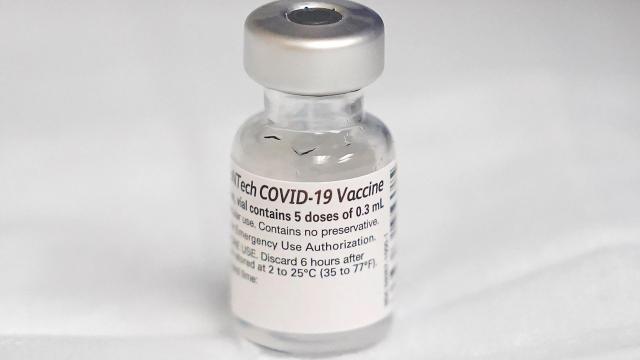Research is beginning to make clear that certain groups of people won’t enjoy the same level of highly effective protection provided by covid-19 vaccines as everyone else. Studies are finding that people who are immunocompromised are less likely to develop immunity against the coronavirus after vaccination.
Even before the vaccine rollout began in earnest last late year, experts expected that people with weakened immune systems would be less protected by vaccination. It’s already known that the virus can cause more serious illness and survive far longer in immunocompromised people, thanks to a weaker immune response generated against it.
This same weak immune response could also make the immunocompromised more susceptible to reinfection, which is thought to be a rare occurrence among most people. But more real-world evidence is starting to paint a picture of how much less effective vaccine-provided immunity may be for these individuals.
Earlier this month, for instance, a study looking at hundreds of organ transplant recipients found that only 15% produced antibodies to the coronavirus soon after the first dose of a mRNA vaccine. By the second dose, only 54% did. Antibodies aren’t the only indicator of immunity, but plenty of other research has shown that the vast majority of people, after infection or vaccination, do create antibodies and have robust immunity, so the results were unsettling nonetheless.
Organ transplant recipients and people with conditions like certain cancers must take immune-suppressing drugs or treatments like radiation that artificially weaken their immune system. Yet there are also people who are born with or develop immune deficiencies that similarly weaken the body’s ability to mount an effective immune response to infection or vaccination. Estimates vary, but somewhere around 10 million Americans are thought to be immunocompromised in some way, leaving them at higher risk for severe covid-19 even after vaccination.
“Risk is very different for people in my situation,” Maria Hoffman, a kidney transplant recipient, told the Washington Post in an article published Tuesday. “I am 100% acting like I am not immunized.”
It’s possible that booster shots down the line may improve outcomes for immunocompromised people. As the pandemic continues to decline in parts of the world, everyone’s absolute risk will decline as well, with fewer cases meaning a lower likelihood of encountering the virus.
But many experts have criticised the U.S. CDC’s newly relaxed guidelines on mask-wearing for neglecting the impact they could have on immunocompromised people.
The guidelines say that only fully vaccinated people can stop wearing masks in most situations, but some states have used the changes to justify lifting nearly all their restrictions altogether. And the lack of a clear way to distinguish the vaccinated from the unvaccinated will likely lead to some people taking off their masks when they shouldn’t, potentially putting other unvaccinated people and vaccinated-but-immunocompromised people at risk.
Most vaccinated people will be able to safely enjoy the upcoming season without much needed worry about covid-19, but it’s a luxury that millions of people, including the immunocompromised, won’t have.
